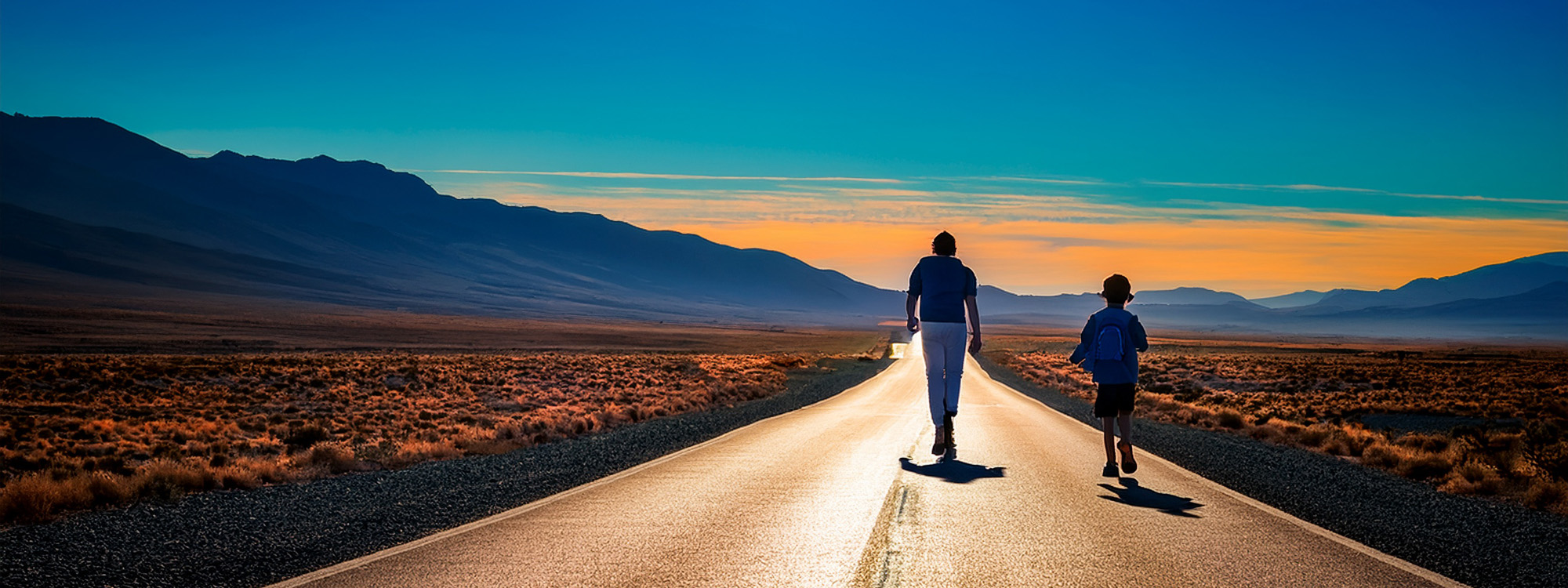| |
His result was that I was at a 'moderate risk factor' to molest a child. And it really annoyed me, and I really felt judged. Like, is that all you see me as? As a risk factor? CANDICE:
Hello everybody, I'm Candice, and I am the host of the Prevention Podcast. We are doing a series of interviews talking with different anti-contact pedophiles across the globe, and I'm really excited today to be talking to Dillon, who has agreed to be on our podcast, so welcome, Dillon.
Dillon:
Thank you very much. Happy to be here.
CANDICE:
Yeah, I'm so happy you're here. I just want to ask you some questions that I think are hot-ticket items, if you will, that I think our global community is always curious about. I know I am, and especially the research world. I think a lot of times we guess on what we think about people that have pedophilia, and so it's really an honor to have you actually sitting here with me, especially since you're an anti-contact pedophile. So I just want to acknowledge that.
Dillon:
Yeah, I think it's important to acknowledge.
CANDICE:
What does the term "anti-contact pedophile" mean to you?
Dillon:
I think it's pretty cut and dry, between pro- and anti-contact. I think anti-contact is just simply you acknowledge that you have these attractions to children, but you're not willing to act on them, because you see the problems it can cause, and morally you know it's wrong. And obviously, you know there's legal repercussions as well. But I think, with an anti-contact pedophile, the morals are more what play into it.
CANDICE:
Okay. How long have you known you were attracted to children?
Dillon:
That's an interesting question, because looking back on it, I think when I was like 11 or 12 I started to notice some kind of difference, where like I would be at school, and I would see different kids who I thought were attractive. But I didn't recognize it as being an "attraction," or anything sexual at the time. It was just my desire to reach out to them and be friends with them. But I think the first realization I really had of it when I was about 17 years old. I had been reading stories online, like erotic stories, that made it kind of obvious to me that I was attracted to children indeed. But I was in denial. So then, when I was 17, I remember seeing a kid and thinking "oh man, that kid's really attractive." And that's when it really hit me really hard, and I was like, "oh no."
CANDICE:
Wow, okay. So when you say, "oh, no," what was the impact to you? Like, "oh, no," because...
Dillon:
Well the thing I thought was, "I'm one of those people." Who likes kids, like I have this urge and can I control that? I don't know if I can. Being at that young age, I didn't have complete faith in myself.
CANDICE:
And, how would you say your attraction to children has impacted your life?
Dillon:
So, I would say it's definitely impacted my life. I've kind of tried to confront it, and I went into a pretty dark depression for a while. And that was something I hadn't really experienced before. That's one way it affected my life. It's also caused me to second guess a lot of things. Like, if I'm ever going to do some volunteer work with kids, or something like that, sometimes it makes me question myself, which I think is a good thing. But it also makes me anxious about what other people might think, who I've told. So I really have to be honest with myself, and ask myself those hard questions. Like, am I going to volunteer with kids because I want to, or because there's something else in my mind?
CANDICE:
And then how do you, when you're asking yourself those questions, how do you keep yourself accountable? What kinds of support do you have in place so that you do stay safe?
Dillon:
Right, so, I have a lot of friends who I talk to pretty frequently, and a lot of friends who I really trust, and who I'm out to about this. And they'll ask me how the volunteer work I do is going. I'm also going to a therapy group, with a bunch of people who are also attracted to minors, and they help keep me accountable as well, where basically every time I go there, it's maybe not quite expected that I'll talk about it, but you know it kind of is in some ways.
CANDICE:
So, being accountable, checking in, making sure that you're being safe, so that if you are volunteering, that you are keeping yourself in check, and you've got the support and the therapy to do that.
Dillon:
Exactly.
CANDICE:
Because, the goal at the end of the day is to make sure children is safe, right? Safe from harm.
Dillon:
Absolutely.
CANDICE:
Yeah, okay, great. What do you want the world to know about pedophilia and/or minor attraction?
Dillon:
So, like you said at the beginning that people kind of assume or guess a lot of times about pedophilia, a lot of times I think they'll assume that any pedophile is a bad pedophile, you know? That any pedophile is someone who molests children, or is constantly downloading child pornography or whatever, and has all this malicious intent. And I guess I just want the world to know that that's not the case. There's a lot of people out there who are attracted to children, but they realize that it's morally wrong, you know, and that they don't want to hurt a child like that. And I think there's a lot of, for me it's not all physical, the attraction. A lot of it is emotional. And I don't think people know that either. I think that the desire to connect with a child doesn't have to be sexual, you know? It can be very much emotional.
CANDICE:
So for you, what you find yourself drawn to sometimes is the emotional connection with a child, more so than even than the sexual.
Dillon:
Absolutely.
CANDICE:
Yeah, and I think that's a great point to get out into the world. Because there is that assumption that pedophile equals child molester. And what we're finding, at least in the research, is now that there are biological underpinnings that say, wow, it might actually be sexual orientation, over this sort of "oh, you know, I wake up and I choose to be attracted to children," right?
Dillon:
Right.
CANDICE:
Okay. So we believe that aspects of pedophilia, and we've talked about this, can be a sexual orientation like we talked about. But we've also had many, many individuals say that they had something, a traumatic experience happen in their life where they had that arrested development. So for instance, something happened at 6, or something happened at 10, and so that also has impacted them, and they've found that in their attraction, and I'm just curious what your experience has been, if anything related to that.
Dillon:
Right, so I agree. It can be a sexual orientation. But I also think that it can be childhood trauma. And maybe it could even be both of them combined. But, in my experience, I don't think it's a sexual orientation at this point. I've thought that before, but going to therapy has sort of helped me to realize, because my mom died when I was 10 years old, and really looking back on that, I've seen that I repressed a lot of emotion at that age. And you know, in some ways, I grew up too fast because of it. And I feel like that has definitely affected who I am now, and the attractions I have. And I feel like part of it is because I went through that emotional trauma, that traumatic event in my life has led me to have that desire to connect with kids.
CANDICE:
So I think it's really important that you said, you know, you felt like it was sexual orientation, and now what you're realizing, and maybe it's both, and I think we see that as well, so often that people have sexual orientation towards a child and they'll also report having a traumatic incident occur in their life, where they did get stunted. Like you said, mom dies at 10, and then what I'm hearing is, "wow, I find myself attracted to that age." And now that I'm going through that trauma, I'm going, "wait a minute, it's changing."
Dillon:
Right.
CANDICE:
Okay. And I thank that's really important for people to know, especially listeners who are anti-contact pedophiles as well, or even pro-contact pedophiles, who might say, "huh, I've never thought about that. I also have had this experience happen, or something traumatic in my childhood to think about."
Dillon:
Yeah. And it's funny, because like, before, I was very much like, "nah, I think it's an orientation, I don't think it's anything else." And the reason I thought that way was because I was worried that if I said it wasn't an orientation, that there would be some therapist who was like, "okay, then we can fix it then." You know, I didn't want to go that route, because I really don't believe in that route.
CANDICE:
Yeah, okay. Like the reparative therapy, right?
Dillon:
Yeah. I didn't want someone to treat me like I was broken.
CANDICE:
Okay, sure. Well, and my guess is, we live in a society that believes pedophilia, and pedophiles are the lowest of the low, right? And so it makes sense that you wouldn't want to be judged by a therapist.
Dillon:
Right.
CANDICE:
And I think even therapists, I'm a therapist and the reason why I created the prevention project, for instance, and this podcast, is that even therapists can be judging. And so we get a lot of referrals who say, "We don't want to treat this individual who has an attraction to a child." And I say, we will, we'll provide them with support. And my passion and my emphasis is not to change people who have pedophilia in the sense of "reparative therapy." I do have a number one goal of keeping our society safe, keeping children safe, and I know that you, for instance, as an anti-contact pedophile, have the same goal.
Dillon: Definitely
CANDICE:
That you don't want to harm anyone, especially children.
Dillon:
Yeah. And I've even had an experience with a therapist who was totally judgmental. I just had one therapist who basically, he had me in his office, and this was my first therapeutic experience. And he just kind of gave me a questionnaire, and just asked me all these different questions, and his result was that I was at a "moderate risk factor" to molest a child. And it really annoyed me, and I really felt judged. Like, is that all you see me as? As a risk factor? So I definitely had my own experience of a judgmental therapist.
CANDICE:
Well, I appreciate you saying that, because, I see you, I'm looking at you as we're talking, and you're a person, sitting in front of me. You're someone's son, you may even have a partner. You may even have siblings, you have a mom and a dad, right? You're a human being, I'm looking at you, you're not a monster. So I think often times, and this is another reason that we're doing this podcast, therapists and researchers and scientists and so on, want to assume or judge or lump everyone in categories. People are labels, and they're numbers, and they're statistics. And that's where I'm really passionate about looking at you as a person, and saying, I'm going to ask you the questions. I want to hear from you and I want the world to hear from you.
Dillon:
Absolutely. I really appreciate that.
CANDICE:
What else would you like to share on our podcast? Anything else that you feel like you want the world to know about anti-contact pedophilia?
Dillon:
I think maybe that like we said, people really see pedophile and child-molester as interchangeable words. And I feel like a lot of people, and I've read some comments online, where people just kind of assume, they're just like, "oh, you're a pedophile, you must be after children, you must be preying on children. You must have all these malicious intents." And, I just want the world that you know that we're on the same boat that they are. We're trying to prevent it as well. And for that reason, we wouldn't want to hurt a child. That's why we're anti-contact. But, honestly, everybody has their things about them that are just different, and they have to deal with.
CANDICE:
Sure. And that's where, I would say,I think the sexual orientation comes in, where it's like, "Okay, I'm born with this attraction," right? Because I'm guessing, Dillon, that if you had a choice, that you would prefer to not have this attraction. Like, "I wish I could wake up and say, oh, it's gone." And here you have it, and so I think for folks who have been interviewing who have pedophilia, some will say that it feels like a prison sentence.
Dillon:
Right. Well, I mean, having it, I wouldn't necessarily say that anymore. I mean, sure I'd like to wake up and not be sexually attracted to children, but that's not going to happen. So I've come to this new thought process, new belief about it, where it's like, this is what it is, and I'm going to do the best I possibly can with it. I'm going to find a way to make it helpful in society, you know? I'm going to make sure I lock down the sexual side of it, and get that out of my head as much as possible.
CANDICE:
And get the support that you need, and the therapeutic guidance, and like you said the peer support, and make sure you've got your accountability group to ensure that you are safe.
Dillon:
Exactly. And I'd say that again, I would like to wake up in the morning and not have the sexual side of it, but I would still want the emotional side of it.
CANDICE:
Yeah. Well, as human beings, we all are emotional, you know?
Dillon:
That's true.
CANDICE: And I think we all can have that emotional connection with a child, and have it be a healthy one. So it's good that you have the support and awareness around that, and the understanding around that, so you can stay safe and healthy.
Dillon:
Absolutely.
CANDICE: Well, thank you so much for your time today, Dillon, I really appreciate you coming on The Prevention Podcast.
Dillon:
No problem. I appreciate you guys doing it, and inviting me.
CANDICE:
You're so welcome.
CANDICE:
Thank you for listening to this week's podcast. Please visit http://theglobalpreventionproject.org/ to learn more about our project and programs. Please remember to subscribe to our podcast at https://thepreventionpodcast.com or iTunes. See you next time!
About the author: When I was like 11 or 12 I started to notice some kind of difference, where like I would be at school, and I would see different kids who I thought were attractive. But I didn’t recognize it as being an “attraction,” or anything sexual at the time. It was just my desire to reach out to them and be friends with them. But I think the first realization I really had of it when I was about 17 years old. I had been reading stories online, like erotic stories, that made it kind of obvious to me that I was attracted to children indeed. But I was in denial. So then, when I was 17, I remember seeing a kid and thinking “oh man, that kid’s really attractive.” And that’s when it really hit me really hard, and I was like, “oh no.” | |






 lawful good: writing a nomap character
lawful good: writing a nomap character thread: could pedophiles appear on stage?
thread: could pedophiles appear on stage? review: lamb - the movie and book
review: lamb - the movie and book